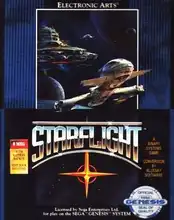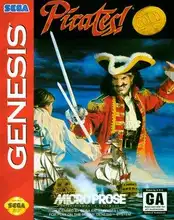Remember that feeling? The one where you booted up your console or PC, saw that title screen, and knew you were about to embark on an adventure that would consume your evenings and weekends? That's the magic of Role-Playing Games. More than just a genre, RPGs are experiences designed to pull you into rich, detailed worlds, let you live another life, and tell stories that stick with you long after the credits roll. For retro gamers, the appeal is doubly strong, wrapped in layers of nostalgia for pixelated sprites, chiptune soundtracks, and gameplay mechanics that felt both simple and infinitely deep.
What Makes an RPG So Captivating?
At their core, Role-Playing Games let you step into the shoes of a character (or a party of characters) and guide them through a narrative. While the specifics vary wildly between Japanese RPGs (JRPGs) and Western RPGs, common threads include:
- Deep Storytelling: Often featuring complex plots, memorable characters, and significant world-building.
- Character Progression: Your heroes grow stronger, learn new abilities, and find better gear, giving a satisfying sense of advancement.
- Exploration: Discovering hidden areas, talking to NPCs, and uncovering lore is a key part of the journey.
- Meaningful Choices: While some RPGs are more linear, many offer decisions that impact the story or world.
- Combat Systems: From turn-based battles and active time mechanics to real-time strategy or action-oriented fights, combat is usually central to overcoming challenges.
It's this blend of narrative, progression, and exploration that makes RPGs so uniquely immersive.
The Golden Age of Pixelated Quests
For many of us who grew up with 8-bit, 16-bit, and 32-bit consoles, the late 80s and 90s were a true golden age for Role-Playing Games. This era saw innovation explode, laying the groundwork for much of what we play today.
Think about the groundbreaking titles:
- Chrono Trigger: A masterclass in time travel, featuring a dream team of creators and pioneering features like multiple endings and integrated combat encounters. Its music, characters, and interconnected story remain legendary.
- Earthbound: Subversive and quirky, this SNES gem took the RPG formula and set it in a bizarre, modern-day setting. Its unique humor, unforgettable enemies, and focus on ordinary kids facing extraordinary threats built a massive cult following.
- Final Fantasy Tactics: A departure from the main series, focusing on tactical, grid-based combat with a deep job system. While initially divisive, its strategic depth and intricate political story earned it a place among the greats.
- Suikoden II: A sprawling epic known for its massive cast of 108 recruitable characters and engaging army battles. Its refined pixel art and emotional story resonated deeply with players.
- Super Mario RPG: Legend of the Seven Stars: An unexpected but beloved collaboration between Nintendo and Square. It brought Mario characters into a charming, humorous RPG world with timed hits adding a unique twist to combat.
These games, and countless others like Xenogears, Phantasy Star IV, and the early Ultima titles, weren't just games; they were portals to other realities.
Why We Still Get Lost in Them Today
Beyond the rose-tinted glasses of nostalgia, why do these classic Role-Playing Games still hold up?
- Timeless Stories: Great narratives and character development don't age. The themes of heroism, friendship, loss, and discovery are universal.
- Focused Design: Many older RPGs had constraints (like limited storage or processing power) that forced developers to be creative, often resulting in tightly designed experiences.
- Unique Mechanics: From intricate job systems to innovative combat approaches, the mechanics introduced in these classics were often bold and experimental.
- Artistic Style: Pixel art and early 3D graphics have a distinct charm that modern hyper-realism can't replicate. The music, often synthesized, is iconic and instantly transportive.
Finding These Old Gems
Want to revisit these worlds or experience them for the first time? Thankfully, it's easier than ever:
- Digital Storefronts: Services like GOG.com (Good Old Games) specialize in making classic PC RPGs (and others) available and compatible with modern systems.
- Emulation: For console classics, emulators (like SNES9x, ePSXe, DOSBox for PC) allow you to play games on modern hardware, often requiring you to source the game files yourself (legally, this usually means owning the original game).
- Re-releases & Remasters: Many popular titles have received official ports, remasters, or remakes for modern consoles and PC, often with quality-of-life improvements.
- Archive.org: A fantastic resource for freely available abandonware PC titles, including many classic RPGs ready to play in your browser or via DOSBox.
The Legacy Lives On
The influence of these foundational Role-Playing Games is undeniable. Modern RPGs build upon the systems, narrative techniques, and world-building ideas pioneered decades ago. Whether it's the character-driven quests of The Witcher, the open worlds of Elder Scrolls, or the tactical depth of Divinity: Original Sin, you can trace their lineage back to the pixelated adventures of the past.
So, next time you're looking for an escape, consider diving back into a classic. Sharpen your pixel sword, gather your party, and get ready to lose yourself in a world crafted with passion and imagination. The adventure awaits!
FAQ
Q: What's the difference between JRPGs and Western RPGs? A: Generally, JRPGs often focus on linear, character-driven stories with turn-based or active-time combat and predefined protagonists. Western RPGs tend to emphasize player choice, open worlds, customizable characters, and real-time or tactical combat. However, these are broad generalizations, and many games blend elements.
Q: Are old RPGs hard to get into today? A: Some older games might have dated interfaces or mechanics that take a little getting used to. However, many have aged remarkably well, and the engaging stories and worlds are often worth the initial learning curve. Re-releases or ports can also make them more accessible.
Q: Where can I legally buy classic PC Role-Playing Games? A: GOG.com is an excellent source, offering many classic PC RPGs DRM-free and pre-configured to run on modern Windows. Steam also has a growing library of older titles.
Q: Are there any free classic RPGs available? A: Yes, Archive.org hosts a large collection of abandonware PC games, including many RPGs, that can often be played for free directly in your browser using emulation.


